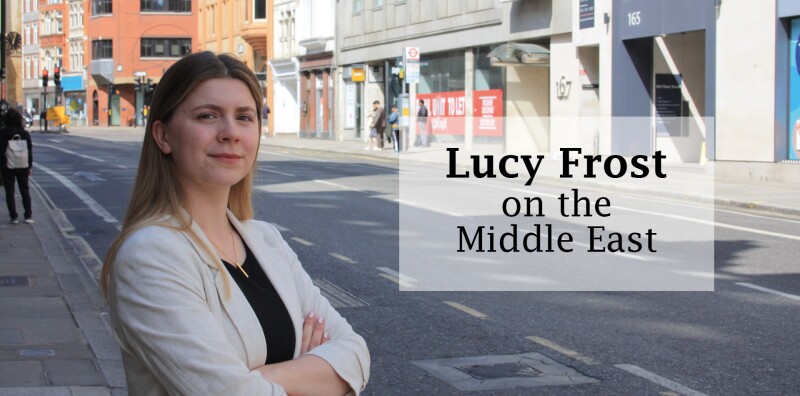
The UAE has put a strong focus on boosting its tech sector during the past five years and has built a vibrant tech and venture capital (VC) sector in Abu Dhabi and Dubai.
Initiatives include Abu Dhabi government’s Hub71 programme, launched in 2019 and described as a tech ecosystem to “accelerate the Emirate’s goal of becoming the nucleus of a vibrant tech start-up ecosystem”.
The programme has impressive backers, including Abu Dhabi’s sovereign wealth fund (SWF) Mubadala, Microsoft and SoftBank Vision Fund. As of March, the 200 start-ups in the programme have raised almost AED4.5 billion ($1.2 billion) in venture capital.
In Dubai, efforts to build the tech sector have attracted international VCs, including SoftBank and Sequoia. The Emirate has become the home of four of the Middle East’s five unicorns, according to Forbes, including Nasdaq-listed transit-booking platform Swvl and tech-enabled cloud-kitchen provider Kitopi.
If the UAE wants to be a global tech hub, it needs to create a suitable environment for tech companies to fund themselves throughout their lifecycle
These are just some of the many developments under the UAE’s government stated goal to produce 10 unicorns – privately owned start-ups worth more than $1 billion – by 2031 and rank in the top three of the Global Entrepreneurship Index.
But if the UAE wants to be a global tech hub, it needs to create a suitable environment for tech companies to fund themselves throughout their lifecycle.
That means not just creating a landscape where tech companies have access to series A, B, C or D funding. It also means providing flexibility on the one thing tech companies seem to love doing more than any other sector: coming to market while they’re still unprofitable.
Diversification
In the past few years, the governments of Abu Dhabi and Dubai have put their equity markets into overdrive with large privatizations through IPOs, as part of the UAE Centennial 2071 plan to diversify away from oil and gas to develop other sectors such as finance.
Notable examples include the government of Abu Dhabi’s $2.5 billion listing of natural gas supplier and distributor Adnoc Gas on the Abu Dhabi Securities Exchange (ADX) in March and the Emirate of Dubai’s listing of state utility Dubai Electricity and Water Authority (DEWA) in a $6 billion IPO on the Dubai Financial Market (DFM) in April 2022.
Changing the IPO eligibility criteria could be the key for Dubai and Abu Dhabi to encourage more privately owned companies to list and retain the tech companies they’ve incubated in the long-term.
This is particularly important for the tech sector. According to one investment banker in the region, companies in tech and tech-related sectors in the Gulf ask more about whether it’s worth listing in the US or dual-listing in the US more than other sectors.
As it stands, companies in the UAE need to have a history of profitability before they can IPO. For onshore companies, the Securities and Commodities Authority (SCA) requires the company to show net operational profits of at least 10% of the company’s capital for the past two years.
For companies in the UAE’s offshore economic free zones – such as the Dubai International Financial Centre (DIFC) and Abu Dhabi Global Market (ADGM), where almost all the UAE’s recent IPO candidates have come from – companies need to show profitability for the past two years, but there is no stipulated minimum level.
According to sources in Dubai, these may not be viewed as hard and fast rules by the regulator, which has said it is open to making exemptions on a case-by-case basis. One logistics company reportedly secured such an exemption, but the IPO was pulled before it came to market.
Growth over profits
There are obvious consumer-protection issues behind why a regulator might not want unprofitable companies listing on their exchanges. But for tech companies, sacrificing profitability for growth has been a go-to strategy used by some of most successful tech companies. Google, Facebook and Amazon were unprofitable for years and now all see market capitalizations at more than $1 trillion.

Since the dot-com era, tech companies have frequently listed while still unprofitable in other markets.
Of course, some of these companies have become cautionary tales. Most notably, co-working space provider and self-described tech company WeWork, which was forced to abort its IPO in 2019 due to concerns about its business model. It then went public on the New York Stock Exchange (NYSE) through a Spac in 2021 before declaring bankruptcy in November.
But plenty of other tech companies have used the injection of cash at IPO to grow and eventually reach profitability, including ride-share platform Uber, and social media platforms Pinterest and Snap.
Either way, unprofitable tech IPOs have become a notable part of mature stock exchanges. Exempting tech firms from the profitability-eligibility rules is the natural next step for a market that touts its reputation as an international tech hub while also working to develop its capital markets.
Starting to shift
There are only a handful of tech stocks listed on exchanges in the Gulf. The DFM categorises none of its 67 listed companies as tech stocks; while the tech stocks on the ADX can be counted on one hand, despite there being 73 stocks listed in all.
This is beginning to shift. As part of the Gulf’s IPO boom, tech companies have occasionally come to the market in Abu Dhabi.
On the ADX, Bayanat listed in October 2022 in a $171 million IPO, and six months later Presight listed at $496 million. Both are data-analytics companies owned by G42, a Mubadala-backed tech holding company in Abu Dhabi focused on artificial intelligence.
We shouldn’t assume that changing the rules around IPO eligibility will open the floodgates. Investors will be selective
The two offerings are small compared with the other issuances that have been coming out of the region. Presight’s IPO was dwarfed by the listing of foreign-exchange provider Al Ansari only weeks later, in April, at more than $2 billion on the DFM.
But despite the smaller valuations, investor interest in these alternative sectors is clearly there. Both were heavily oversubscribed. Bayanat’s order book reached $2.04 billion, while Presight’s reached $26 billion.
Both companies had strong track records of profitability, but sources in the UAE tell Euromoney that these deals and their huge order books are a sign of the high levels of investor interest in the tech sector.
The first step
However, we shouldn’t assume that changing the rules around IPO eligibility will open the floodgates. Investors will be selective.
Much of the pre-IPO funding for larger potential candidates in the region has come from the Gulf’s more tech-experienced investors, such as the SWFs or larger family offices, which have global investments in tech and are used to the funding dynamics in the sector.
Other investors could need a little more persuading to get on board, due to differences around valuation and income styles.
Companies listed in the Gulf are traditionally income stocks, while tech companies, especially unprofitable ones, are usually growth stocks.
But investor appetite is there, especially if it’s led by stronger IPO candidates. These could include companies with a recognizable name, clear growth story, profitability at the ebitda level, or a SWF backer.
